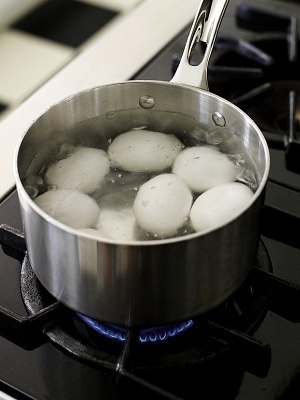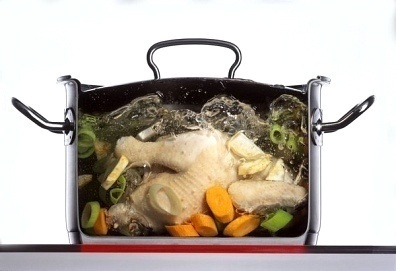How to Boil an Egg
Egg is very versatile. It is a quick fix for anyone who does not have the patience and time to wait for a decent meal. It is very nutritious and costs very little. We can’t say, however, that it is very easy to prepare. There is a trick to being able to boil the perfect egg. Once you are able to get the hang of it, you will not have any problems at preparing boiled eggs anytime.
Decide How ‘Done’ You Want It
There are several ways of serving boiled eggs. Some like it soft, some like it hard, others like it in between. The key to achieving the kind of boiled egg outcome you want is deciding what you want in the first place.
Soft boiled eggs are cooked far shorter than the hard boiled eggs. Those who want to get a not-too-soft nor-too-hard egg would need to calculate how much time the eggs need to cook in the boiling water in the sauce pan.
How to Boil an Egg
The basic on how to boil an egg is preparing the necessary materials. You will need a small pan. The size of your saucepan would depend on how many eggs you will be cooking at the same time.
You need to put in enough water that will fill the egg with at least one inch allowance from the top of the eggs. Add one teaspoon of salt to the water. Bring the salted water to a boil before putting your eggs one by one carefully using a spoon. As soon as the water reaches its boiling point again after putting the eggs, you must start timing.
Soft boiled eggs would require about three to seven minutes to cook in the simmering water. Hard boiled eggs, meanwhile, would need to cook for ten to twelve minutes. If you want a kind of doneness that is in between, you may cook your eggs for about eight minutes.
Tips and Tricks
If you think boiling egg is a simple task, think again. There are a lot of factors that could affect how well you will enjoy your egg. Here are some tips that will help show you the way so next time you can say that boiled eggs is the perfect meal – easy to prepare, nutritious, and cheap.
Tip #1: If you are cooking soft boiled eggs, you will need to bring the water to a boil first before submerging the eggs. In case of hard boiled eggs, you may place them already along with the cold water. Still, you will time your cooking only after the water starts to boil.
Tip #2: If you are boiling eggs from the refrigerator, you will need to rest them for at least 30 minutes before cooking them. Otherwise, the egg shell would crack due to the pressure.
Tip #3: Eggs should be cooked at room temperature. If you are in a hurry and you are boiling eggs that are stored in the fridge, you mat want to run it to lukewarm water or hot tap for a couple of minutes before you start preparing them.
Tip #4: If your eggs are picked fresh from the farm, expect to face a big challenge peeling it. Your eggs should be older or at least five days old to be ideal for boiling.
Tip #5: The size of your pan may also affect the kind of outcome you will get. Make sure that you only use a small pan that is enough to carry the number of eggs that you are boiling. You should not leave room for the eggs to hit each other or the sides of the pan and break in the process.
Tip #6: Adding a teaspoon of salt is key in coming out victorious from the challenge of peeling the boiled egg.
Tip #7: You may pinprick your eggs before boiling to avoid the shell from cracking. The egg cracks due to the pressure within the egg. That’s why creating a pinprick as an escape would help prevent the egg from swelling and cracking. You must prick the rounder end of the egg and not the pointed one.
Tip #8: Lowering the heat as the water comes to a boil is key in getting softer whites. The continuously high temperatures will toughen the egg white.
Tip #9: The time required to cook your eggs would depend on how big or small they are. Larger eggs would need a minute more to cook while smaller ones will need a minute less.
Tip #10: As soon as your eggs are cooked, put them in a bowl of cold water or run them under cold water. This will help keep the yolk yellow, free from discoloration. Peeling is also easy when you have immersed your eggs in cold water immediately after cooking. The steam created between the shell and the egg while makes the process easier.







